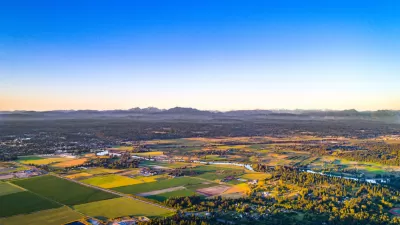Advocates say it’s unnecessary, but Snohomish County is preparing to expand its urban growth areas to allow for more low density residential development.

Snohomish County is considering a comprehensive plan update that could expand its urban growth areas (UGAs), according to an article by Stephen Fesler published by the Urbanist.
“In total, 1,283 acres could be added to the county’s UGAs,” reports Fesler. “Some of the proposals would designate expanded UGA lands for medium density residential zoning and modest urban commercial zoning. However, there are proposals that would also designate expanded UGA lands for low density residential zoning, too.”
Fesler makes the argument that Snohomish County could avoid expanding the county’s UGAs by rezoning existing low-density UGAs for medium density. “In fact, the county could establish policies for low, medium, and high density residential lands to accommodate much higher densities than they do today. By and large, existing urban zoning in unincorporated areas is very low density and has the potential for much higher levels of infill housing and redevelopment if policymakers would further reform zoning,” writes Fesler.
More detail on the comprehensive plan updates under consideration can be found in the source article, below, along with context provided by a recent zoning change in the county to liberalize its accessory dwelling unit rules as well as countywide growth targets adopted in Fall 2021.
FULL STORY: Snohomish County Considering Suburban Sprawl Expansions As Part of Comprehensive Plan Updates

Maui's Vacation Rental Debate Turns Ugly
Verbal attacks, misinformation campaigns and fistfights plague a high-stakes debate to convert thousands of vacation rentals into long-term housing.

Planetizen Federal Action Tracker
A weekly monitor of how Trump’s orders and actions are impacting planners and planning in America.

In Urban Planning, AI Prompting Could be the New Design Thinking
Creativity has long been key to great urban design. What if we see AI as our new creative partner?

King County Supportive Housing Program Offers Hope for Unhoused Residents
The county is taking a ‘Housing First’ approach that prioritizes getting people into housing, then offering wraparound supportive services.

Researchers Use AI to Get Clearer Picture of US Housing
Analysts are using artificial intelligence to supercharge their research by allowing them to comb through data faster. Though these AI tools can be error prone, they save time and housing researchers are optimistic about the future.

Making Shared Micromobility More Inclusive
Cities and shared mobility system operators can do more to include people with disabilities in planning and operations, per a new report.
Urban Design for Planners 1: Software Tools
This six-course series explores essential urban design concepts using open source software and equips planners with the tools they need to participate fully in the urban design process.
Planning for Universal Design
Learn the tools for implementing Universal Design in planning regulations.
planning NEXT
Appalachian Highlands Housing Partners
Mpact (founded as Rail~Volution)
City of Camden Redevelopment Agency
City of Astoria
City of Portland
City of Laramie





























